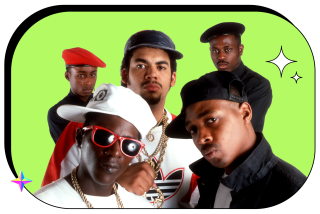1980s--Troubled Decade Ends on High Note : Television: ABC begins networks’ review of the past 10 years that saw scourge of drugs and AIDS and the ecstasy of freedom.
- Share via
NEW YORK — It was the decade of crack and cocaine, hunger and homelessness, acid rain and a hole in the ozone layer--but it was also the year in which freedom set down new roots in Eastern Europe.
As Charles Dickens said in another context, “It was the best of times, it was the worst of times. . . .”
“I’m not sure you can sum up the decade of the ‘80s,” Peter Jennings said in an interview, although he will be doing just that tonight at 10 p.m. on ABC when he anchors a news special, “Images of the ‘80s.”
NBC also reviews the decade with “The ‘80s,” anchored by Tom Brokaw, which airs Wednesday at 10. Andy Rooney over at CBS decided a decade was too big, and he will review 1989 in “The Year With Andy Rooney” to air at 10 p.m. Thursday.
Jennings’ reservations about summing up the decade stem in part from the arbitrary time frame.
“Some things about the ‘80s,” he said, “are clearly going to be infinitely just as much of a big challenge in the ‘90s.
“In that category are drugs and AIDS. And this was the decade in which we came to the clear realization that we are doing horrible things to the environment. Toward the end of the decade there’s been an acceleration in our consciousness, our awareness, and hopefully that will make a difference.”
To illustrate where we have traveled in the ‘80s, it is helpful to go back to where we began.
“The ‘images’ we start with are from the latter days of the 1970s,” Jennings said. “The gas lines, the malaise of the Iran hostage situation that in many ways paralyzed the nation.
“You can see how significant a decade it has been. There’s a wonderful moment in the beginning of a Woody Allen movie from the ‘70s where he gets a laugh from cocaine. Here we are in the ‘80s, and cocaine has emerged as an enormous burden.”
The most exciting development, of course, has come at the end of the decade with the rapid-fire developments in Eastern Europe.
Jennings said the program opens with a reprise of the ‘70s, then goes into the way technology--fax machines, computers, VCRs, cellular telephones--have changed our lives. The third act of the program concentrates on the two great plagues, AIDS and drugs.
“The final act is almost all about democracy,” Jennings said. “It was a great decade for democracy. I start out saying, ‘A student, a housewife, a playwright and an electrician--these were the people who rewrote history in the 1980s.’
“The student was the young man who stood up to the tanks in Tian An Men Square in Beijing; the housewife was Corazon Aquino in the Philippines; the playwright was Czech dissident Vaclav Havel, and the electrician was Lech Walesa in Poland.
“Go back to the beginning of the decade, and we didn’t take Solidarity very seriously, or drugs very seriously. Poor Walter Mondale couldn’t get to first base talking about the federal deficit. You see a country that wanted to be very strong again, ergo Ronald Reagan.
“We deal quite a lot with Reagan and his relationship with the country, with our Marines killed in the embassy bombing in Beirut, and then the Grenada invasion and how the President’s popularity was untouched. When we finally retreated from Lebanon altogether, the President’s popularity did not move a point, not one point.”
More to Read
The complete guide to home viewing
Get Screen Gab for everything about the TV shows and streaming movies everyone’s talking about.
You may occasionally receive promotional content from the Los Angeles Times.






